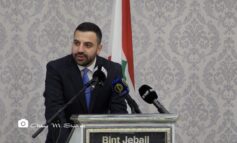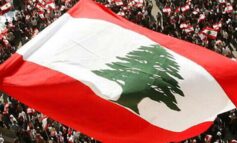BEIRUT (AFP) — U.N. chief Ban Ki-moon warned Lebanese leaders Friday that their country stood on the brink of an “abyss” if they failed to put their differences aside to elect a new president by a November 23 deadline. “If the responsibilities are not shouldered, there might be a move to the brink of an abyss,” the U.N. chief said after holding talks with members of the Western-backed ruling coalition and the Hizbullah-led opposition. “This is the time for all Lebanese leaders to put their national interest above personal and sectarian interests,” Ban added.

The U.N. chief also met with Nasrallah Sfeir, the influential spiritual leader of the Christian Maronite community, during his 24-hour visit that began late Thursday. Prime Minister Fouad Siniora’s government and the opposition, which is backed by Syria and Iran, have been engaged in a bitter power struggle over who should be chosen to replace the current Damascus-backed head of state Emile Lahoud, whose term expires November 24. Sfeir on Friday submitted to both sides a list of potential candidates in hope they could agree on one or several names ahead of a crucial vote in parliament next Wednesday. The crisis is the country’s worst since the end of the 1975-1990 civil war and there are fears the conflict will lead to two rival governments, as was the case at the end of the war. Lebanon’s president must be a Maronite Christian according to the country’s confessional power-sharing system and is elected by parliament rather than by popular suffrage. Three special parliament sessions to elect a successor to Lahoud have already been postponed because of the deadlock and there are fears that a last-chance vote on November 21 could meet the same fate. Saad Hariri, head of the majority bloc in parliament, told AFP Friday he believed there could be a “breakthrough” at any moment and that he was confident the election would take place by the constitutional deadline. “It could happen at any time, we’re good to go,” Hariri said. “We don’t seek a presidential void and we want to elect a president.”He added that French efforts to end the crisis had broad support with only Damascus and its local allies voicing opposition. “The attacks on the French initiative are coming from one source — Syria and its tools,” he said. France, Lebanon’s former colonial power, has spearheaded diplomatic efforts for the vote to take place with Foreign Minister Bernard Kouchner convincing the Maronite patriarch earlier this week to draw up a list of candidates whose names could then be put to both the majority and the opposition. Apart from Kouchner and the U.N. chief, Italian Foreign Minister Massimo D’Alema was expected in Beirut late on Friday to join the diplomatic efforts. Kouchner is also due to return next week — for his sixth visit in as many months — to ensure the vote goes through. Siniora’s cabinet has been paralyzed since the opposition withdrew its six ministers in November last year in a bid to gain more representation in government.





Leave a Reply